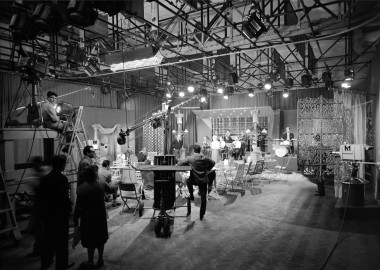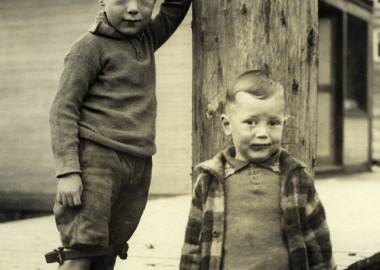
Apology, Take One: Broken Trust
“The Board of Management at Volkswagen AG takes these findings very seriously.”
That’s how the German automaker worded its first apology, referring to allegations by the US Environmental Protection Agency that it knowingly circumvented the Clean Air Act in a half-million of its American automobiles.
The statement — from CEO Martin Winterkorn — continued: “I personally am deeply sorry that we have broken the trust of our customers and the public.”
Such formal amends might have cut it had the company’s problems ended there, but Volkswagen was subsequently forced to double down on its apology, admitting that the alleged misconduct — installing software to improve emissions, but only when the car sensed it was being tested — might spill over to affect not just 500,000 diesel cars but up to 11 million around the world and across a number of its brands, including Jetta, Golf, Passat and the Audi A3.
Apology, Take Two: Really, Really Sorry
Cue Winterkorn’s second apology:
“I am deeply sorry that we have broken this trust. I would like to make a formal apology to our customers, to the authorities and to the general public for this misconduct. We will do everything necessary to reverse the damage. And we will do everything necessary to win back trust — step by step.”
No business welcomes such a drastic — and public — misstep. And no CEO relishes leaping into the spotlight when a heroic story turns to tragedy, as has been the shocking case recently for another car manufacturer, GM’s Mary Barra. (Not to mention Toyota president Akio Toyoda’s appearance before Congress.) But it’s the leader’s job to lead even when the way grows dark, and to speak on behalf of hundreds, sometimes thousands, of employees, when the unfortunate time comes to show heartfelt and personal contrition.
Apologizing is the right response to disaster, but it’s only the first; reparation can’t end merely with saying sorry. (After all, we’re not six years old still.)
Why Apology Matters to a Brand’s Story
It’s encouraging that in recent years this has become standard corporate practice — in part, thanks to the rising expectation among consumers and shareholders that companies, once seen as faceless and faultless, should become as transparent and human as their employees, clients and customers in the Age of Social. (Try and find a new-media company CEO who hasn’t issued a community apology.)
At ECHO, we don’t often deal with crisis management, but we do encourage our clients to tell true and honest stories at all turns. We emphasize that “true” means cataloguing not just their moments of triumph but their personal and corporate lows as well — after all, a story that’s relentlessly positive lacks texture. It’s boring, and what’s more, it’s probably dishonest — every life gets a little rain, and most lives get a lot. The recognition that we make mistakes, and that we can learn from them, introduces not just fallibility and reliability to storytelling but the best virtue of all: vulnerability.
The ability to deliver a heartfelt and meaningful apology (one that also won’t land you in jail) has led to a widespread focus in communications departments on the art of saying sorry. It seems there is a right way and a wrong way. The Harvard Business Review recently reported on two studies that show the benefit of apologizing correctly — especially to the bottom line. The first study looked at how CEOs’ demeanour affects their reception:
“When an apology was delivered by a CEO who looked sad, the company’s stock price actually rose post-apology. ‘A good apology can build investor confidence,” especially in the long term.’”
The second study considered the impact of whether the CEO blamed others or fell on his sword. Again, the results were clear:
“While companies are twice as likely to blame external factors when things go wrong, passing the buck results in continued financial decline. Conversely, companies that take responsibility for their missed earnings stabilize and eventually see an uptick in financial performance.”
Which makes the end of that apology from Volkswagen CEO Martin Winterkorn all the more head-scratching:
“In our Group, more than 600,000 people work to build the best cars for our customers. I would like to say to our employees: I know just how much dedication, how much true sincerity you bring to your work day after day. Therefore, it would be wrong to cast general suspicion on the honest, hard work of 600,000 people because of the mistakes made by only a few. Our team simply does not deserve that.”
Certainly, investors at that point were less than thrilled that Volkswagen may be slapped with an estimated $8.7 billion in repairs and fines, and share price was quick to reflect that disappointment: stocks plummeted 35% in the four days after the news broke. But those stocks aren’t showing signs of recovery, either. (It’s lost around 44% since the Dieselgate scandal broke.)
There are issues larger than the actions of one CEO, but “I’m sorry” is a strong first step.
“I’m sorry but it’s not really our fault”? Not so welcome.
Resignation
A day later, Winterkorn resigned:
“I am shocked by the events of the past few days. Above all, I am stunned that misconduct on such a scale was possible in the Volkswagen Group….I have always been driven by my desire to serve this company, especially our customers and employees. Volkswagen has been, is and will always be my life.”
And yet: “I am doing this in the interests of the company even though I am not aware of any wrong doing on my part.”
Does your company’s leadership want to embrace authenticity through storytelling? We’d love to hear from you. Call us at 1.877.777.ECHO (3246) or email us at hello@echostories.com.
Related: How to be honest in car advertising





